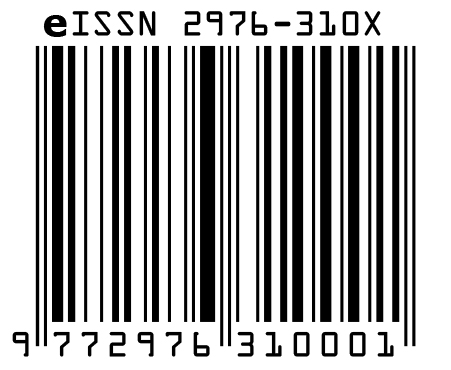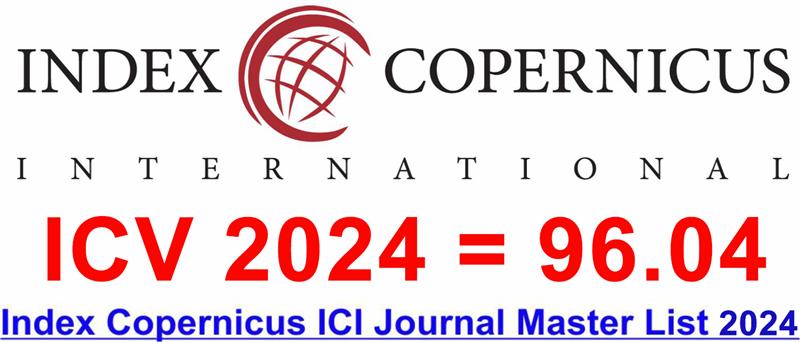Role of Teachers and Students: An Analysis of Higher Education Commission Speaking Curriculum at Graduate Level in Pakistan Subtitle: Implication of the Role of Teachers and Students in Curriculum Design
DOI:
https://doi.org/10.60072/ijeissah.2024.v2i03.003Abstract
An effective curriculum must clearly define the roles of both teachers and students in achieving its goals. The HEC undergraduate educational policy 2023 emphasizes that the speaking curriculum should align with fieldwork requirements, reflecting in the roles of teachers and students. This study explores these roles in teaching and learning speaking skills at the undergraduate level in Pakistani universities. Teachers need to enhance their knowledge and skills to effectively use various instructional methodologies. Curriculum developers must ensure their curricula support student learning, provide the necessary tools to meet learning objectives, and improve the education system. This qualitative study used a language teaching model, collecting data through interviews with teachers and students, analyzing the functional English curriculum, and observing classrooms focused on speaking skills. Findings indicate that the speaking curriculum needs improvement to redefine teachers as facilitators rather than directors and ensure proper classroom implementation. Additionally, students need more involvement in pair/group activities to develop workplace-related speaking skills. The study suggests revising the curriculum to incorporate practical learning activities that encourage student engagement and speaking skills development.
Keywords:
Role of Students, Role of Teachers, Higher Education Commission (HEC), HEC's Speaking Curriculum, Speaking SkillsReferences
Ayub, S. (2020). Sociocultural factors involved in the oral competency of ESL students at the graduate level. Journal of Communication and Cultural Trends, 2(1), 60–82. https://doi.org/10.32350/jcct.21
Ayub, S., & Lodhi, M. A. (2016). Association of the Psychological Factors Hampering Oral Skill of ESL Students at Graduate Level, At Bahawalpur, Pakistan. Research Journal of Education, Academic Research Publishing Group, 2(4), 57-63. https://ideas.repec.org/a/arp/rjearp/2016p57-63.html
Ayub, S., & Lodhi, M. A. (2016). Identification of the Teacher’s Debilitating Attitude Involved in Acquiring Oral Competency of ESL Students at Graduate Level, English Literature and Language Review, Academic Research Publishing Group, 2(4), 43-48. http://arpgweb.com/?ic=journal&journal=9&info=aims
Ayub, S., & Khaleel, B. (2024). The needs of graduates required by the employment industries: analysis of English language speaking course outlines at Pakistani universities. Journal of Language and Pragmatics Studies, 3(1), 9–21. https://doi.org/10.58881/jlps.v3i1.44
Ayub S. and Mohammed L.A. (2024) Higher Education Commission's English-Speaking Curriculum: The Preparation for Speaking Skills at Graduate level in Pakistan, British Journal of English Linguistics, 12(3), 1-14.
Effendi, I., Andriyanti, E., & Nadjib, N. (2020). Teachers' Beliefs as Facilitators in Effective English Language Teaching and Learning. Conference: 1st International Conference on Language, Literature, and Arts Education (ICLLAE 2019). DOI:10.2991/assehr.k.200804.008
Imran, S., & Wyatt, M. (2019). Curriculum-Making and Development in a Pakistani University. The Qualitative Report, 24(10), 2506-2519. https://doi.org/10.46743/2160-3715/2019.3808
Kamal, Z. (2019). Teacher's Role and the Principles of Teaching Speaking Skill. Tafhim Al-'Ilmi. 10. 140-156. https://doi.org/10.37459/tafhim.v10i2.3430
Kapur, R. (2021). Curriculum and Instructional Strategies: Fundamental in Achievement of Educational Goals.
Leyaley, R. (2023). Students' Passiveness in Speaking English: The Culprit behind the Silence in the Classroom. Open Journal of Social Sciences, 11, 98-111. 10.4236/js.2023.118007
Mahsar, L. (2021). Teaching English Using Content-Based Instruction (CBI) In Improving Students' English Speaking Skill (A Classroom Action Research in the Second Grade Students of Poltekpar Lombok, Jurnal Ilmiah Hospitality, 9(2), 241-254. doi: 10.47492/jih. v9i2.342.
Nation, I. S. P., & Newton, J. (2009). Teaching ESL/EFL Listening and Speaking. ESL & Applied Linguistics Professional Series. Routledge Taylor & Francis Group. DOI:10.1016/j.system.2009.11.002
Richards, J., & Rodgers, T. (2001). Approaches and Methods in Language Teaching (p. 204). New York: Cambridge University Press. http://dx.doi.org/10.1017/CBO9780511667305.021
Saeed, M. K., Khaksari, M., Eng, S. L., & Ghani, A. M. A. (2016). The Role of Learner-learner Interaction in the Development of Speaking Skills. Theory and Practice in Language Studies. 6. 235. 10.17507/tpls.0602.03.
Ur, P. (1996). A Course in Language Teaching. Practice and Theory. Cambridge: Cambridge University Press.
Zamharir, Z. V., Karami, M., & Sani, H. J. (2023). Challenges of revision and implementation of curriculum in Ferdowsi University of Mashhad. Quarterly Journal of Research and Planning in Higher Education, 25(1), 123-147. https://journal.irphe.ac.ir/article_702972.html?lang=en
Zafar, S. (2016). Who is responsible for unemployment in Pakistan, education or the education system? https://discover.hubpages.com/politics/education-system-is-responsible-for-unemployment-in-pakistan
























